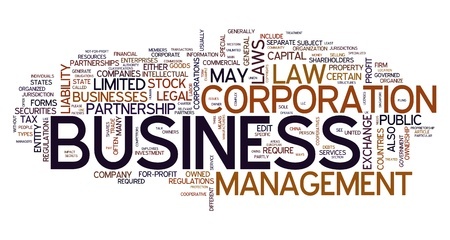
This page is designed as an “all in one resource” for you to refer to with your trademark basics questions.
And here's a quick video I did on Periscope to review everything in this post:
Trademark Basics: What is a trademark?
In general terms, a trademark is “a word, phrase, slogan, symbol, or design, or combination thereof, that identifies the source of your goods and services and distinguishes them from the goods and services of another party.” In other words, a trademark lets consumers know that certain goods or services come from you and from your brand alone, not from someone else. The US Patent and Trademark Office refers to a trademark as “a brand for goods and services.”
A Trademark can be a word, slogan, symbol, design, combination of those items, or even a smell or a color. Anything can be a trademark so long as it distinguishes the source of goods and services from other competing goods and services in the marketplace.
Searching Trademarks
Conducting a proper trademark search is vitally important when starting a new brand. If you pick the wrong name it can be extremely costly. We have done an extensive article on how to properly conduct a trademark search here.
What about Domain Names?
When you “register” your web address through a domain name registrar, it is important for you to understand that this does NOT give you trademark rights to that web address. A domain name is merely a web address that identifies a website, not a trademark. If you register a domain name that infringes on another businesses trademark, you could be forced to give it up.
Trademark vs. Copyright vs. Patent
A trademark is used to protect a brand name for goods or services. A copyright, however, will protect original works of art, both literally and artistic. This includes music, lyrics, books, screenplays, as well as movies or plays. A patent protects things that people invent. This could be an actual process or a system used in business. Different businesses require different protections. Not all businesses require patent protection, even though they all have trademarks that should be registered.
When should you start the process of trademarking your business name?
We recommend applying for a trademark rights to your brand or company name as soon as you possibly can. You can do this almost immediately by filing an “intent-to-use” trademark application, which will insure that your brand is protected as soon as you begin selling in the marketplace.
In addition, before you submit your application for trademark registration either you or your attorney should conduct a thorough trademark search to ensure that your chosen mark is available and that you aren't accidentally infringing on someone else's mark. (This is one of the biggest mistakes we see online businesses make, without even knowing it). Infringing on someone else's intellectual property is expensive, as we discuss here.
Why Should you Register your Trademark?
Even though most small and online businesses overlook trademarks, they are an essential part of your business and your intellectual property. Not only do they represent your goodwill and reputation in the marketplace, but they also distinguish your brand of products and services from those of your competitors.
While it is not necessary to register your trademark, doing so will enhance and solidify your legal rights to the mark. By using your trademark in commerce, you create what are called “common law” rights to the mark. However, those rights are limited in scope, and by failing to register your trademark it is difficult for others to know about your rights.
Here are a few of the biggest benefits to registering your trademark with the USPTO:
- Registration creates a legal presumption that you are the owner of the mark. Without this legal presumption, you would have to prove your ownership right if you ever needed to enforce your registration either in or out of court.
- By registering your mark, you receive a legal presumption that you have the exclusive right to use your mark nationwide with the goods and services that are identified in your registration. (A state registration, on the other hand, only gives you protection within the borders of your particular state).
- Registration puts the public on notice that you are the owner of the mark.
- By giving people notice that you own a particular mark, when other people are considering potential marks, they will be more inclined to avoid your mark if they find that it is already registered. This will also keep the USPTO from registering a mark that is confusingly similar to yours.
- After your mark is registered, you may record your mark with the U.S. Customs and Border Protection, thereby preventing the importation of infringing or counterfeit foreign goods.
- You may use your US trademark registration as the basis to apply for trademark registration in many foreign companies.
- You will obtain the right to bring a legal action to enforce your registered mark in Federal Court.
- You may use the “R in the circle” symbol in conjunction with your mark. You cannot do this unless your mark is federally registered.
How long does the trademark process take?
The complete process, from filing your trademark application to receive a final registration from the USPTO can take anywhere from 9 months to several years. This is another reason it is important to start this process as soon as practically possible.
How do I decide which class to use? Does it matter?
Yes. Picking the right class is a big deal and can mean the difference between getting your mark approved and having to file a new application. There are 45 different classes of goods and services that you can choose from. This is one area where an attorney can really help you with the process. Most small businesses will want to start with one class, but it is possible that you will need to file in multiple classes to receive the broadest protections. The USPTO provides a search tool that can help you identify the proper class.
What about my logo? Should I register that?
We recommend that our clients recommend their brand or company name and their logo and offer flexible pricing plans that make doing so affordable.
If you are in a situation where it is only financially feasible for you to file one trademark application at a time, then we recommend that you start with your business or brand name. This will not offer protection for the design elements of your logo, but your name will remain protected, regardless of the font style or size that are used.
Do You “own” the name to your company after it is incorporated?
In short, no. A business name, even if incorporated, is just that… a name under which you do business. You do not acquire trademark protection over your name unless and until you file a trademark application and receive a certificate of registration from the USPTO.
How many years does a trademark registration last?
An initial trademark application lasts for 10 years. You may apply to renew your application for another ten years after the first term expires. There is no limit to the number of times that you may renew your application.
If you own a small business and have questions about whether you should trademark your business or brand name, feel free to schedule a quick strategy call with our office to discuss your legal options.



